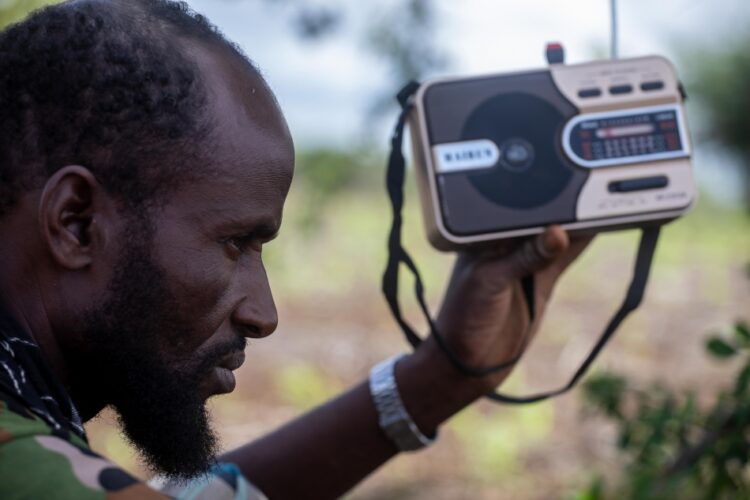Amid the age of digital technology, radio is still one of the most popular and fundamental communication media in Somalia, where most households own battery-operated portable radios. While rich in oral tradition, Somalia’s rural areas experience poor internet penetration rates, which is why the use of radio remains an effective medium for the locals.
Using this tried-and-tested medium, the Food and Agriculture Organization of the United Nations (FAO) implemented a radio-based training program targeted towards Somali farmers as a way to overcome pandemic-induced restrictions and reach target rural communities. The programs are written in simple English and translated into Maaxa Tiri and Maay, which are the two main spoken languages in Somalia. Each episode lasts about 20 minutes and is broadcast by 21 radio stations all over the country.
The training program covers a broad range of topics, aiming to equip its audience with knowledge of agricultural practices, climate-smart techniques, financial education, and value chain development. Each episode focuses on a different topic and provides explanations and practical information for farmers to use in the field.
An impact assessment conducted by FAO in 2022 revealed increasingly positive results from listeners, with a majority gaining skills in both crop production and nutrition. Additionally, many were able to apply the gained knowledge in improving productivity and reducing their post-harvest losses.
Etienne Peterschmitt, FAO Representative in Somalia, emphasizes the importance of radio-based programs in overcoming challenges and threats regarding climate change. As a way to combat this, FAO aims to institutionalize radio training programs and continue to foster learning and rural communication services.
With the United Nation’s observance of World Radio Day on February 13, FAO remains committed to empowering rural communities worldwide, making use of radio-based programs and initiatives.
To know more, read this article from YenKasa Africa.
References:
FAO. 2022. Distance learning via radio for rural communities in Somalia – Overcoming COVID-19 restrictions through adaptive measures that facilitate access to agricultural and nutrition knowledge. Nairobi. https://doi.org/10.4060/cb8326en
FAO. (2024, February 13). I learned it on the radio. Food and Agriculture Organization of the United Nations. https://www.fao.org/fao-stories/article/en/c/1676973/
Article contributed by Darelle Anne Ebron, CCComDev intern
Photo taken from the FAO Website


Comments are closed, but trackbacks and pingbacks are open.